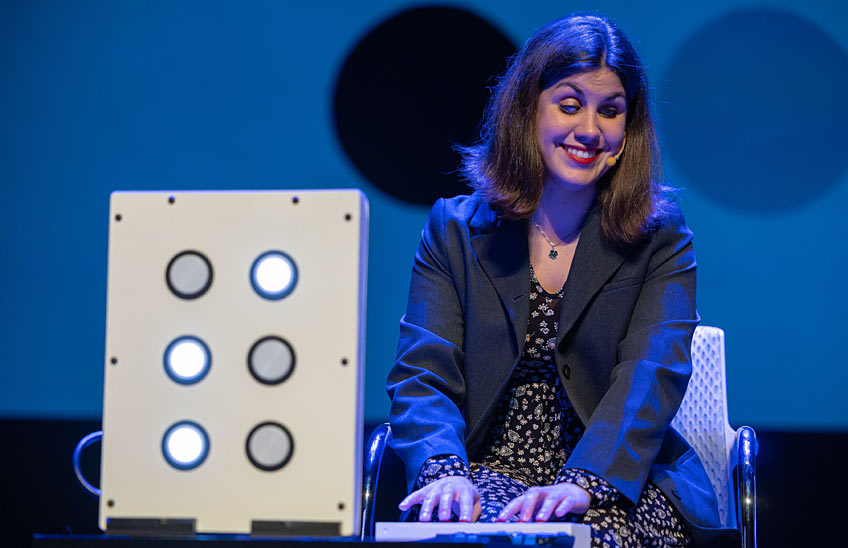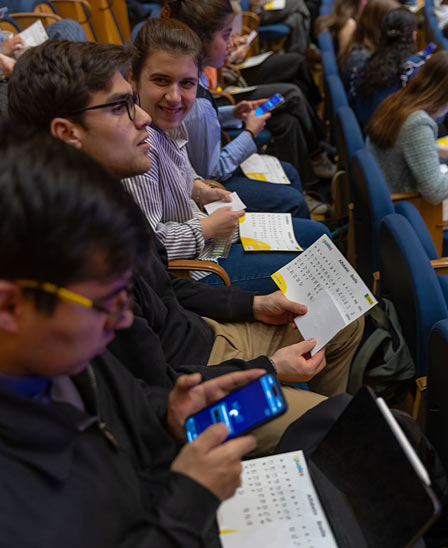braille class at the University of Navarra
Marina Rojas, manager of the Spanish Braille Commission department , gave the third session of the cycle 'Training to Understand Disability': "More and more companies are incorporating Braille in their products, but there is still a long way to go," she said.

FotoManuelCastells
/Marina Rojas, manager of the Spanish Braille Commission department , during her participation in the cycle Training to understand disability at the University of Navarra.
19 | 02 | 2025
"Braille is much more than a dot system; it is a tool that allows visually impaired people to access information and participate on equal terms". With this reflection, Marina Rojas, from the Spanish Braille Commission-ONCE, began her session"Acaricia la inclusión, aprende braille", in the framework the cycle"Capacitarse para Entender la Discapacidad", organized by Tantaka, the Banco de Tiempo Solidario of the University of Navarra, in partnership with the Iddeas Foundation.
Coinciding with the 200th anniversary of the invention of Braille, a system that has transformed the lives of millions of visually impaired people, the speaker highlighted the relevance of this celebration, recalling that Braille not only allows access to information, but also represents a fundamental step towards a more inclusive society.
During the session, the attendees learned in a theoretical and internship way the functioning and relevance of this literacy system. "We see differently, but we want to participate like anyone else," said Marina, stressing the importance of treating visually impaired people with equal opportunities.
He also underscored how, despite progress, there are still barriers that hinder access to information. He gave as an example the labeling on everyday products, where it is still not common to find Braille inscriptions. "Although more and more companies are incorporating Braille in their products, there is still a long way to go," he explained. In this regard, he mentioned a law in the pipeline that will make it mandatory to include braille labeling on products. "It shouldn't take a law to guarantee something as basic as access to information," he said. "A gesture as simple as including a word in Braille means greater protection and equality for us," he concluded.
The series will conclude on Monday, February 24 with the session"I don't see with my eyes, but there are many ways to see the world", position by María Petit, ambassador of the Adecco Foundation.

A group of students learning braille at the session held in the Museum's theater.




